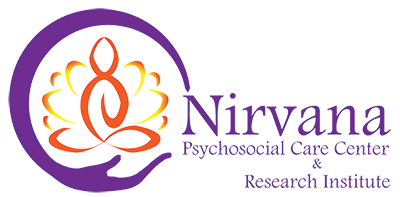Initiatives to Regulate Industrially Processed Foods
Abstract
Trans-fatty acids, commonly referred to as trans fats, were discovered in the early 20th century with the development of hydrogenation – a chemical process that converts liquid vegetable oil into solid fats. Initially perceived as a healthier alternative to saturated fats due to their stability during cooking and longer shelf life, more recent research has linked trans fats to a number of adverse health outcomes.1
There are two types of trans fats: naturally occurring and artificial. Naturally occurring trans fats are found in small amounts in meat and dairy products from ruminant animals, such as sheep, cows, and goats, where the fats are formed in the gut of the animal. By contrast, artificial trans fats, also known as industrially produced trans fatty acids (iTFAs), are created through hydrogenation, which is the process utilized in the production of margarine and shortening.1
The consumption of trans fats leads to increased LDL (bad) cholesterol and decreased HDL (good) cholesterol levels. This unfavorable cholesterol profile can contribute to cholesterol accumulation in the arteries, elevating the risk of heart disease and stroke.2 The inclusion of trans fats as part of the daily diet increases the risk of coronary heart disease by 21% and the risk of death due to the disease by 28%.3 The consumption of trans fats also promotes inflammation, which can lead to the development of stroke, diabetes, and other chronic illnesses from excessive activation of the immune system. Moreover, consuming trans fats disrupts the normal functioning of the endothelial cells lining the inner wall of blood vessels, thereby compromising their responsiveness.4
Trans fat is present in many processed and fried foods, including snacks and fast foods.1 The amount of trans fat in a food item depends on the number of times vegetable oil is heated during preparation, with increased heating leading to more significant health consequences. Specifically in South Asian cuisine, dishes cooked in vegetable ghee and certain steamed vegetable sweets like Jerry, Lalmohan, and Gundpak have been found to contain excessive amounts of trans fats.5
According to the World Health Organization (WHO), there is no safe level of trans fat consumption; WHO recommends the intake of trans fats be limited to less than 1% of total daily energy intake.6 To provide a comprehensive strategy for eliminating iTFAs from the global food supply, the WHO introduced the REPLACE package, which contains a set of practical actions and guidelines for governments, industries, and civil society to make concerted efforts toward achieving this goal.
References
Manetti S. Facts about trans fats. Medical Encyclopedia. MedlinePlus; 2022.
De souza RJ, Mente A, Maroleanu A, et al. Intake of saturated and trans unsaturated fatty acids and risk of all cause mortality, cardiovascular disease, and type 2 diabetes: Systematic review and meta-analysis of observational studies. BMJ 2015;351:h3978. doi: 10.1136/bmj.h39782015;351:h3978
Mozaffarian D. Trans fatty acids - Effects on systemic inflammation and endothelial function. Atheroscler Supplements. 2006;7(2):29-32. doi: 10.1016/j.atherosclerosissup.2006.04.007.
http://www.nepalihealth.com/ (February 25, 2023)
World Health Organization. Countdown to 2023: WHO Report on Global Trans-fat Elimination 2019. Geneva: World Health Organization; 2019.
Food Safety and Standards Authority of India. Trans-fats – A Silent Killer Wrapped Under Tasty Treats. Nuffoods Spectrum. India: Food and Safety Standards; 2020.
Daily Sun Correspondent. Govt adopts regulation on limiting trans-fat in foods. Bangladesh: Daily Sun. 2021
Ministry of Health. National Strategic Framework for Development of Health Services 2016-2025. Sri Lanka: Ministry of Health and World Health Organization; 2015.
Nepal Heart Foundation. Trans-fat Elimination Efforts in Nepal 2021-2022. A Progress Report. Lalitpur: Nepal Heart Foundation; 2023. Available from: https://nepalheart.org.np, https://nepalheart.wixsite.com/nehfc
Regmi PR, Baidya PR, Maharjan MR. Briefing on Legal Measures to Limit the Use of Industrially Produced Trans-fatty Acids in Nepal. Unpublished document. Lalitpur: Nepal Heart Foundation; 2022. https://nepalheart.org.np
Copyright (c) 2023 Author

This work is licensed under a Creative Commons Attribution 4.0 International License.
The author(s) retain the ownership of the copyrights for their work published in the EJMS without any restrictions. Upon submission, the author(s) grants EJMS the right of first publication including the right to display, store, copy, and reuse the published content. The corresponding author, on behalf of all authors, grant a license to do the following;
- to publish the content in all forms, formats, and media (whether known now or created in the future) and identify itself as the original publisher.
- to reproduce, distribute, display, and store in the print as well as online version and repositories.
- to translate the published work into other languages, create adaptations, reprints, include within collections, and create summaries, extracts, and/or, abstracts of the contribution.
- to create any other derivative work(s) based on the contribution.
- to include in any electronic database, links from the contribution to third-party material, wherever it may be located.
The author(s) also grant usage rights to others (readers) under their terms of the Creative Commons Attribution 4.0 international (CC BY 4.0) license that allows users to copy and redistribute the materials; remix or build upon the materials even for any lawful purpose even commercially provided that the author(s) and the journal are properly cited, and any changes are indicated.


